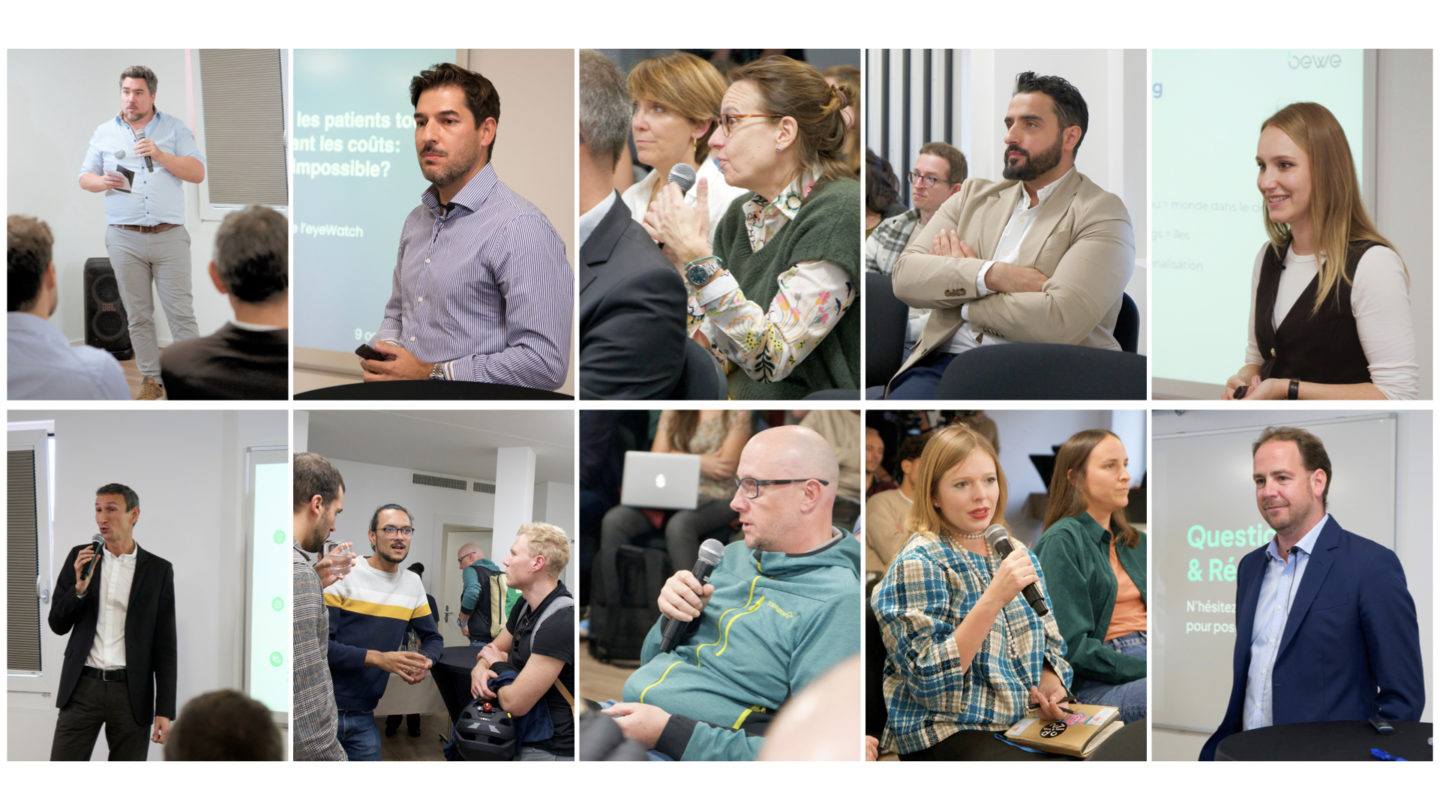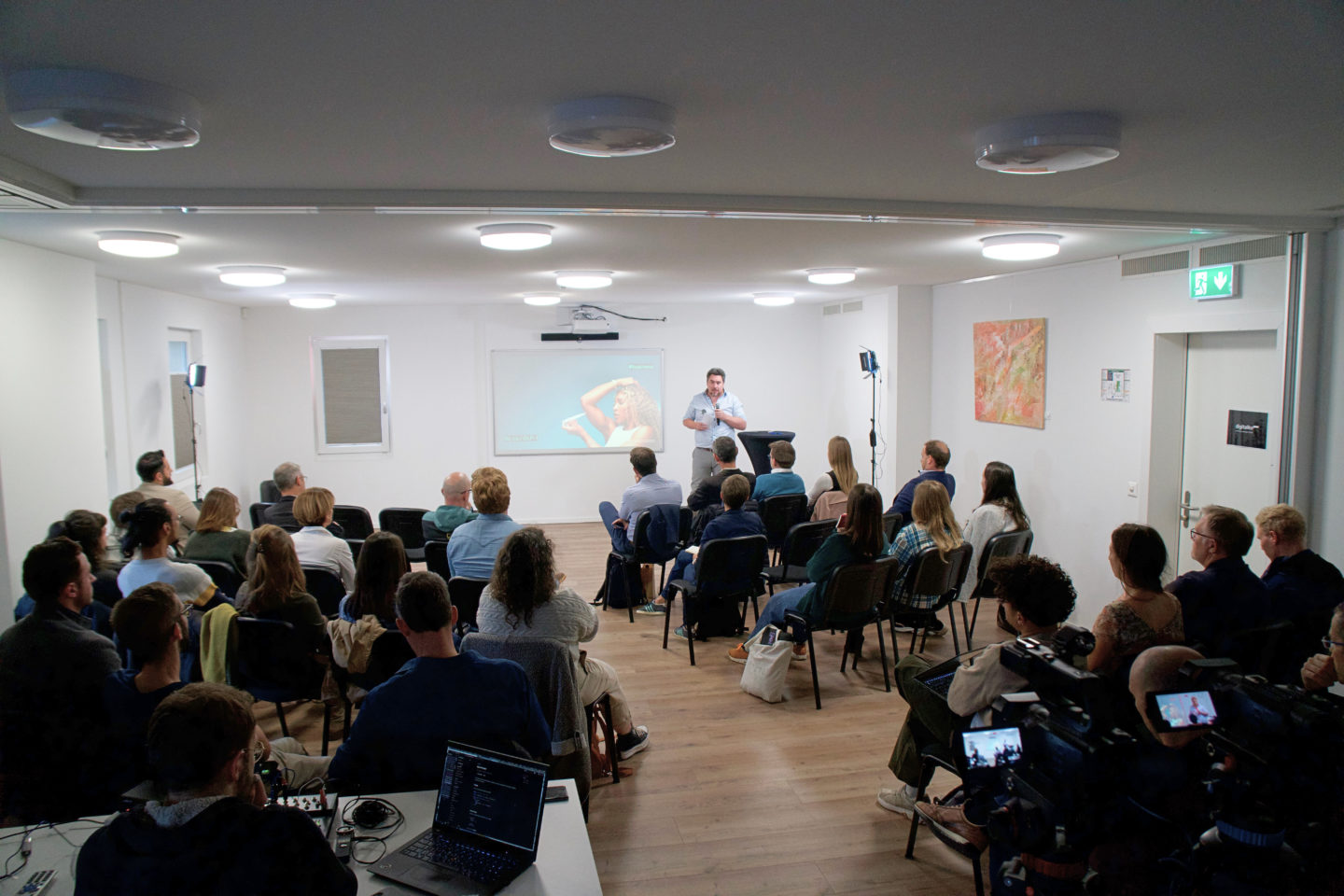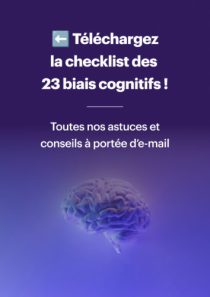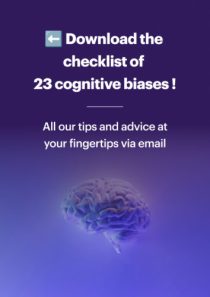On Thursday 9 October 2025, the fifth edition of the Digitalks took place, an event organised by Apptitude in partnership with the Biopôle.
The event took place in the L’Union hall in Epalinges and brought together an audience of healthcare, innovation and digital professionals.
Under the theme “Innovating for patients while reducing costs: mission impossible?”, this edition explored the economic and human challenges of innovation in healthcare. How can technological progress, budget constraints and real impact on patients be reconciled? Three speakers shared their vision, successes and difficulties through very different approaches:
- Guillaume Dupasquier, CEO of domo.health
- Marie Pittet, Data Scientist & AI Lead at BEWE
- Dr. Adan Villamarin, COO of Rheon Medical
From the centralisation of health data at home to brain reprogramming through gaming, and even precision microsurgery inspired by watchmaking, these discussions highlighted a shared conviction: “Innovation only makes sense if it genuinely improves patients’ lives while remaining sustainable for the healthcare system.”
This fifth edition also marked an important milestone in the collaboration with the Biopôle, a unique ecosystem where research, innovation and healthcare entrepreneurship meet. Thanks to this partnership and the warm welcome of Pierre-Jean Wipff, the exchanges were particularly lively and constructive, fostering genuine cross-disciplinary dialogue.
Between open questions, feedback and spontaneous discussions, this edition stood out for its rare collective energy, true to the spirit of the Digitalks: learning, debating and sharing to advance innovation in a concrete and human-centred way.

The digitalks aims to bring together entrepreneurship, design, and engineering. Three speakers take the stage to share their experiences, successes, and challenges around a common theme. The goal is to present concrete and practical cases, avoiding any promotional approach.
Discover and register for the next edition: www.digitalks.ch
Connecting patients, relatives and caregivers to better prevent critical situations and enhance autonomy at home.
Guillaume Dupasquier, entrepreneur and CEO of domo.health, transformed a personal experience into an innovation mission: connecting patients, relatives and caregivers to better prevent critical situations and enhance autonomy at home.
At the heart of domo.health lies a human story. A son confronted with his father’s illness and a simple observation: despite the presence of relatives and regular medical monitoring, essential health information was poorly communicated. Caregivers received fragmented data, often too late to act.
Faced with this gap, Guillaume Dupasquier decided to create a solution. The initial idea: use sensors to detect unusual behaviours and allow seniors to stay at home longer. An innovation driven by IoT, but quickly confronted with two realities: the reluctance of older people towards technology, and the difficulty of relying on nurses to sell such a product, as it was not their role.
The company then redirected its trajectory. From a complex B2C model, domo.health became a B2B platform dedicated to healthcare professionals. It centralises data from the field and care, providing a comprehensive and continuous view of the patient to all relevant stakeholders. This shift proved successful: over 65 new professional clients in one year.
Behind this growth lies a fundamental lesson: innovating means first identifying a real problem, then accepting to experiment, fail and try again, until finding the balance between actual need and flawless execution.
A game on eating behaviours that reprogrammes the brain.
Marie Pittet, Data Scientist and AI Lead at BEWE, combines neuroscience and design to help people regain control over their eating behaviours through Bene, a mobile game that reprogrammes the brain while entertaining.
What if the solution to overweight was not on the plate, but in the brain? This is the bet of BEWE, a Swiss startup that developed Bene, a scientifically validated mobile game to reduce cravings for ultra-processed foods.
The issue is well known: these products activate our primitive reward circuit, which, in survival times, drove us to seek sugar and fat. Today, this mechanism works against us. To retrain it, BEWE relies on a neuroscience-based method: “Go / No Go” exercises. The principle? Train the brain to say no to unhealthy impulses.
But to turn this method into a lasting experience, it was necessary to leave the laboratory and immerse it in the world of gaming. Design comes into play: storytelling, a likeable mascot, online rankings, a progression system, balance between challenge and fun. Nothing is left to chance. Marie Pittet also explained that to remain engaging, a game should maintain about 70% success: just challenging enough to stimulate, without discouraging.
The result: an app that does not promise perfection, but offers a playful and gradual learning experience. By combining scientific rigour with creativity, BEWE aims to prove that it is possible to influence our behaviours not through constraints, but with enjoyment.
A microsurgical implant inspired by Swiss watchmaking to revolutionise glaucoma treatment.
The final speaker of this edition, Dr Adan Villamarin, engineer and COO of Rheon Medical, is tackling a major challenge: revolutionising the treatment of glaucoma. How? With a microsurgical implant inspired by Swiss watchmaking, combining precision, efficiency and durability.
Innovating in the medical field often means navigating between clinical performance and economic reality. For Rheon Medical, this challenge takes a very concrete form: improving the treatment of glaucoma, a condition that remains one of the leading causes of blindness worldwide.
Existing solutions have high failure rates and demanding post-operative care. Adan Villamarin and the Rheon Medical teams therefore designed a device of exceptional precision: a 5.5 mm by 0.5 mm implant, acting like a tiny valve regulating intraocular pressure. This feat of engineering, inspired by Swiss watchmaking, offers new hope to many patients.
After more than ten years of research and five years of commercialisation, the results are clear: a 90% success rate in surgeries, a considerable improvement over traditional techniques. But perfection comes at a price: longer operating times, specialised follow-up, and a higher device cost.
Aware of these limitations, the team is now developing a second version, faster to implant and more accessible, while maintaining the same effectiveness. Rheon Medical’s example perfectly illustrates the reality of medical innovation: finding the balance between technical excellence, economic viability and human impact.
Discover the theme and speakers of our upcoming digitalks conference and register online at: www.digitalks.ch.





